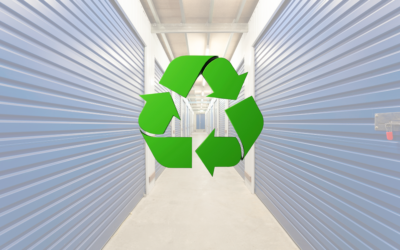Sustainability in the Finishes and Interiors Sector
FIS is committed to taking a pro-active lead, not just in supporting the UK ambition to net zero carbon by 2050, but delivering profound transformation within our supply chain on all aspects of ethical and environmental sustainability.
In this toolkit we look at some of the key actions that you can take and also some of the wider sector initiatives that can support your business in setting a sustainability strategy. The aim is to support companies in meeting the ethical and environmental aspects of sustainability considered from the three dimension of planet, people and profit across the entire construction supply chain. Definitions of sustainability do vary, but focus is on where our sector can make a positive impact in line with the UN Sustainability goals and the Net Zero agenda in the UK.
FIS 10 Golden Rules for Waste Reduction
Introducing Sustainability
General Principles
Relevant Literature
Reuse
FIS Pre-Cycle Agreement
The FIS PreCycle agreement provides a direct link between the manufacturer and user of a construction product to ensure that at end-of-service-life, the material can be recovered, repurposed, recycled or processed in the most environmentally way by keeping the product at its highest value application and importantly avoiding landfill.
Sector Specific Activities
Flooring
Plasterboard
Ceilings
Training
FIS has partnered with the Supply Chain Sustainability School
Zero carbon resources for finishes and interiors
Free-to-access training materials, videos, webinars and resources.
FREE sustainability learning pathway “‘FIS Sustainability Awareness: Doing Business Better”.
Start your Net Zero journey with a free assessment
Working with the Supply Chain Sustainability School FIS supported the development of this new assessment is based on what the company is doing in sustainability rather than their knowledge. We would like to encourage our members to use this tool. The plan longer term will be to use the tool to map our collective journey to net zero and help members benchmark their own efforts. calculating your organisational footprint and assessing your companies capability.
More resources to help you understand sustainability in the finishes and interiors sector
Sustainability related to your activities
Sustainability related to your organisation
Sustainability Headlines
Workshops and webinars available through the Supply Chain Sustainability School and FIS
The Supply Chain Sustainability School and FIS have collaborated to bring you a range of workshops and webinars specific to the finishes and interiors sector. We've highlighted below all the upcoming sessions and relevant resources. Introduction to Modern Slavery with...
Expanding England’s tree coverage and encouraging the safe usage of timber in construction
The government is committed to increasing England's tree canopy and woodland cover to 16.5% by 2050, as per the statutory tree and woodland cover target. However, planting trees alone is not enough. To make the most out of the materials they provide, the government...
Re-use, net zero, sustainability and FIS efforts
Wednesday marked the last formal FIS Working Group meeting for 2023 with the FIS Sustainability Leadership Group descending on Clerkenwell, kindly hosted by Troldtekt in their showroom. As host Steve Mansell kindly acted as Guest Chair (this Chair for this group...
FIS CEO joins new SKARating Board
Getting ready for Net Zero: SKA announces new Board and governance SKArating is announcing an exciting change in leadership and new plans to scale up to support the growing need to reshape sustainability in the fit-out world. SKArating has, over the last 15 years,...
FIS seeks project manager and storage facility for exciting new re-use initiative
In conjunction with its members and the wider sector, FIS is developing an exciting new reuse pilot project to reduce the environmental impact of the fit-out sector and embodied carbon emissions and waste from strip out projects. Surveys have shown that there is a...
Guidance for contractors carrying out a pre fit-out audit
According to Defra, the construction industry is responsible for 68 million tonnes of construction and demolition wastes each year. While 92% of those wastes are recovered, that still leaves 5 million tonnes going to landfill. It is also understood that most of...
FIS Events
Path to Net Zero
The CLC Roadmap to Recovery has laid out proposals to secure the future of construction, while setting the industry on a sustainable path towards recovery. But what does this mean to projects in our sector.
Calculating your carbon footprint
As the industry is becoming more aware of the urgency to work towards net zero carbon targets, it is important that organisations start measuring their carbon footprint.






